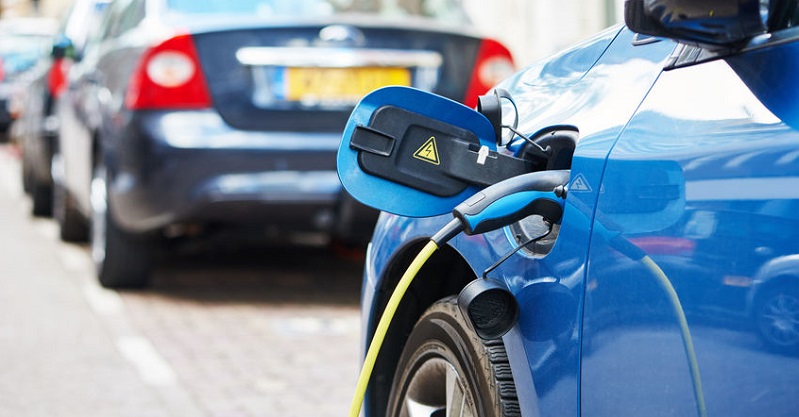Eight states, including Colorado, are planning to keep region-crossing travelers’ electric vehicles powered by enhancing 5,000 miles of interstates and highways with charging stations.
Route to End EV Drivers’ Eternal Quest for Power
The biggest worry prospective electric car buyers have: running out of power and not having the miles-long extension cord needed to reach the closest electrical outlet. There are gas stations everywhere to fill gasoline tanks, but charging stations for a new Tesla are scarce.
To combat this trend, Colorado and other states in the region are planning to make things less stressful.
Gov. John Hickenlooper has signed a memorandum of understanding (MOU) with seven Southwest states to transform highways into an electric vehicle (EV) corridor connecting the region’s prairies, woods, mountains, and deserts. Arizona recently became the eighth state to sign on.
Significant? Maybe you could think of it as a 21st century Transcontinental Railroad. In 1870, it connected the fledgling Denver City to the rest of the nation and helped transform the gold town into a bustling regional hub. A highway with strategically placed charging stations could usher Denver into the coming age of electric cars and ensure its future with cleaner air and safer transportation. But then again, maybe electric vehicles are just a passing fad.
Hickenlooper and the governors of Arizona, Idaho, Montana, Nevada, New Mexico, Utah, and Wyoming, though, are betting electric vehicles will only become more popular and significant as it becomes more available.
Thousands of Miles of Roadway
The plan would extend over 5,000 miles of highway routes and 11 interstates across the West, according to reporting by Colorado Public Radio “Colorado Matters” host Nathan Heffel. He interviewed Will Toor, the transportation director for SWEEP, about the Southwest Energy Efficiency Project, which is coordinating the routes. Their goal is to make EV charging stations as widely available as gas stations and to remedy the so-called “range anxiety” that haunts prospective EV buyers.
The initial agreement said states would lay the groundwork for creating EV charging corridors on Interstates 25, 70, and 76 in Colorado. Those will connect with east-to-west interstates 10, 40, 80, 84, 86, 90, and 94, north-to-south Interstates 15 and 25, and interstates 8, 17, and 19 in Arizona, SWEEP says. States can also propose additional roadways be added to the network.
The MOU the governors signed says electric infrastructure plans will make it possible to drive an electric vehicle “seamlessly” across the eight states’ major highways. The routes will increase highway access, promote tourism and recreation in rural communities, and support the region’s economies.
The program aims to increase consumers’ acceptance of electric vehicles by addressing range anxiety. The participants will coordinate the minimum standards, frequency, and placement of charging stations to optimize their usage.
Boosted by a Pollution Scandal
Colorado’s participation has already received a boost from German automotive giant Volkswagen’s $22 billion settlement with the U.S. government. The car manufacturer must pay for tricking environmental regulators into believing its diesel cars met enhanced clean-air guidelines. As penance, Volkswagen is committed to building 300 charging stations in the greater Denver area and hundreds more in other regions of the country.
Praise From Conservationists
Conservation Colorado’s Sophia Guerrero-Murphy, a transportation and energy advocate, cited by SWEEP, said:
“We’re thrilled by this announcement, which will help Coloradans connect to the outdoors and the places they love. The West is leading the way as electric vehicle adoption and use grows across the country. Cleaning up our transportation system is critical to protecting public health and the environment, and we look forward to working with these governors to continue to modernize our transportation system and make it more accessible to everyone.”
Electric Vehicles, Anticipated Safety
Although their views aren’t universal, electric vehicle advocates in state and federal government and the automotive industry believe that electric vehicles are bringing higher safety levels to the public. By developing high-tech accident-avoidance and autopilot systems, future cars might eliminate the human error that causes a reported 94 percent of all auto accidents.

